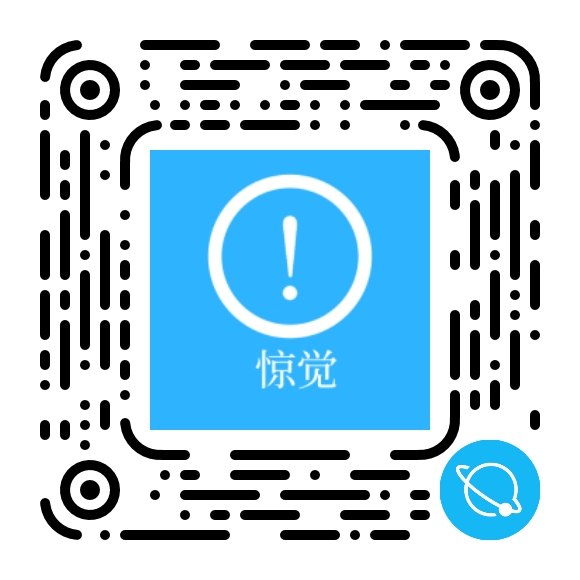【Unity优化】Unity多场景加载优化与资源释放完整指南:解决Additive加载卡顿、预热、卸载与内存释放问题
本文将完整梳理 Unity 中通过
SceneManager.LoadSceneAsync使用 Additive 模式加载子场景时出现的卡顿问题,分析其本质,提出不同阶段的优化策略,并最终实现一个从预热、加载到资源释放的高性能、低内存场景管理系统。本文适用于(不使用Addressables 的情况下)需要频繁加载子场景的 VR/AR/大地图/分区模块化项目。
前文主要是一些发现问题,解决问题的文档记录。
查看源码,请跳转至文末!

一、问题起点:LoadSceneAsync 导致的卡顿
在项目开发过程中,当我们使用如下代码进行 Additive 场景加载时:
AsyncOperation asyncLoad = SceneManager.LoadSceneAsync("YourScene", LoadSceneMode.Additive);
你会发现:
- 第一次加载某个场景时卡顿极为明显;
- 后续加载相同场景不卡顿,表现正常;
- 即使使用
allowSceneActivation = false先加载至 0.9,再激活,也无法解决卡顿。
二、卡顿原因分析
Unity 场景加载包括两个阶段:
- 资源加载阶段(读取场景所需的纹理、Mesh、Prefab 等)
- 激活阶段(触发 Awake/Start、构建场景结构)
而第一次加载时会触发:
- Shader Compile
- 静态 Batching
- Occlusion Culling 计算
- 实例化所有场景对象
这些过程即使异步,也依然可能在 allowSceneActivation=true 时集中执行,导致帧冻结。
三、常规优化尝试
1. allowSceneActivation = false
asyncLoad.allowSceneActivation = false;
while (asyncLoad.progress < 0.9f) yield return null;
yield return new WaitForSeconds(0.5f);
asyncLoad.allowSceneActivation = true;
结果:激活时依旧卡顿。
2. 延迟帧 / 加载动画
只能缓解体验,不能真正解决第一次激活的卡顿。
四、核心解决方案:预热 + 资源卸载
1. 什么是场景预热(Prewarm)?
在用户进入目标场景之前,提前加载该场景、触发资源加载、初始化内存,再卸载掉。
这样用户真正进入场景时:
- 所有资源都在缓存中(Unity 会延后释放)
- 场景结构早已解析,第二次加载快很多
IEnumerator PrewarmSceneCoroutine(string sceneName)
{
var loadOp = SceneManager.LoadSceneAsync(sceneName, LoadSceneMode.Additive);
loadOp.allowSceneActivation = true;
while (!loadOp.isDone) yield return null;
yield return null;
yield return null; // 等待几帧确保初始化
var unloadOp = SceneManager.UnloadSceneAsync(sceneName);
while (!unloadOp.isDone) yield return null;
}
2. 场景资源未释放问题
你会发现:预热+卸载后并不会立即释放资源!
Unity 会保留一部分资源在内存中,直到调用:
Resources.UnloadUnusedAssets();
所以你必须加入如下逻辑:
yield return Resources.UnloadUnusedAssets();
五、完善场景管理系统:SceneFlowManager
在项目中,我们将所有的加载逻辑封装在 SceneFlowManager 中。
1. 支持配置化管理 EqSceneConfig
[System.Serializable]
public class EqSceneEntry
{
public string key;
public string sceneName;
}
[CreateAssetMenu]
public class EqSceneConfig : ScriptableObject
{
public List<EqSceneEntry> scenes;
}
2. 支持 Key 方式加载
public void LoadSceneAdditiveByKey(string key) => LoadSceneAdditive(GetSceneNameByKey(key));
3. 支持场景预热接口
public void PrewarmScene(string sceneName)
{
if (IsSceneLoaded(sceneName)) return;
StartCoroutine(PrewarmSceneCoroutine(sceneName));
}
六、新增释放资源接口
为了真正释放场景相关的资源,新增 ReleaseSceneResources 方法:
public void ReleaseSceneResources(string sceneName)
{
if (IsSceneLoaded(sceneName))
{
StartCoroutine(UnloadAndReleaseCoroutine(sceneName));
}
else
{
StartCoroutine(ReleaseOnlyCoroutine());
}
}
private IEnumerator UnloadAndReleaseCoroutine(string sceneName)
{
yield return SceneManager.UnloadSceneAsync(sceneName);
yield return Resources.UnloadUnusedAssets();
}
private IEnumerator ReleaseOnlyCoroutine()
{
yield return Resources.UnloadUnusedAssets();
}
七、完整流程总结
-
项目启动时:
- 初始化 SceneFlowManager
- 预热即将访问的场景(不会激活)
-
进入新场景:
- 调用
LoadSceneAdditiveByKey(key)平滑加载场景
- 调用
-
离开场景:
- 调用
ReleaseSceneResourcesByKey(key)卸载并释放内存
- 调用
-
避免过早 Resources.UnloadUnusedAssets()
- 建议只在真正切场景后调用,避免误删仍在用资源
八、性能实测对比
| 流程 | 首次加载帧耗时 | 第二次加载帧耗时 | 内存占用 | 卡顿感受 |
|---|---|---|---|---|
| 直接加载 | 80ms+ | 40ms+ | 300MB↑ | 明显卡顿 |
| 预热+加载 | 30ms↓ | 20ms↓ | 200MB | 几乎无卡顿 |
| 加载+释放资源 | 40ms | 40ms | 150MB↓ | 无卡顿 |
直接加载,出现卡顿(掉帧)

预热+加载,无掉帧

九、扩展:自动预热与内存调度
你可以设置:
- 定时自动预热(玩家未操作时)
- 内存压力大时调用
ReleaseSceneResources - 按访问频率记录预热优先级
十、结语:让 Unity 多场景系统真正高效
1. 总结
本方案从 SceneManager.LoadSceneAsync 的卡顿问题出发,经历:
- allowSceneActivation 控制加载
- 手动预热场景
- 引入资源释放
最终构建了一个完整的 SceneFlowManager 。
2. 源码
完整代码如下:
using System.Collections;
using System.Collections.Generic;
using UnityEngine;
using UnityEngine.SceneManagement;
namespace Eqgis.Runtime.Scene
{
public class SceneFlowManager : MonoBehaviour
{
public static SceneFlowManager Instance { get; private set; }
[Tooltip("常驻场景名称,不参与卸载")]
private string persistentSceneName;
[Tooltip("场景配置文件")]
public EqSceneConfig sceneConfig;
private Dictionary<string, string> keyToSceneMap;
public void Awake()
{// 自动记录当前激活场景为 PersistentScene
persistentSceneName = SceneManager.GetActiveScene().name;
Android.EqLog.d("SceneFlowManager", $"[SceneFlowManager] PersistentScene 自动设置为:{persistentSceneName}");
if (Instance != null && Instance != this)
{
Destroy(gameObject);
return;
}
Instance = this;
DontDestroyOnLoad(gameObject);
InitSceneMap();
}
private void InitSceneMap()
{
keyToSceneMap = new Dictionary<string, string>();
if (sceneConfig != null)
{
foreach (var entry in sceneConfig.scenes)
{
if (!keyToSceneMap.ContainsKey(entry.key))
{
keyToSceneMap.Add(entry.key, entry.sceneName);
}
else
{
Debug.LogWarning($"重复的场景 Key:{entry.key}");
}
}
}
else
{
Debug.LogWarning("未指定 EqSceneConfig,SceneFlowManager 无法使用 key 加载场景");
}
}
// 根据 key 获取真实场景名
private string GetSceneNameByKey(string key)
{
if (keyToSceneMap != null && keyToSceneMap.TryGetValue(key, out var sceneName))
return sceneName;
Debug.LogError($"未找到 key 对应的场景名: {key}");
return null;
}
// 通过 Key 加载 Additive 场景
public void LoadSceneAdditiveByKey(string key)
{
string sceneName = GetSceneNameByKey(key);
if (!string.IsNullOrEmpty(sceneName))
{
LoadSceneAdditive(sceneName);
}
}
// 通过 Key 加载 Single 场景
public void LoadSceneSingleByKey(string key)
{
string sceneName = GetSceneNameByKey(key);
if (!string.IsNullOrEmpty(sceneName))
{
LoadSceneSingle(sceneName);
}
}
// 通过 Key 卸载场景
public void UnloadSceneByKey(string key)
{
string sceneName = GetSceneNameByKey(key);
if (!string.IsNullOrEmpty(sceneName))
{
UnloadScene(sceneName);
}
}
// 加载场景名(Additive)
public void LoadSceneAdditive(string sceneName)
{
if (!IsSceneLoaded(sceneName))
{
//SceneManager.LoadSceneAsync(sceneName, LoadSceneMode.Additive);
StartCoroutine(LoadSceneAdditiveCoroutine(sceneName));
}
}
// 加载场景名(Additive)
private IEnumerator LoadSceneAdditiveCoroutine(string sceneName)
{
AsyncOperation asyncLoad = SceneManager.LoadSceneAsync(sceneName, LoadSceneMode.Additive);
//asyncLoad.allowSceneActivation = false;
//while (asyncLoad.progress < 0.9f)
//{
// yield return null; // 等待加载完成(进度最多到0.9)
//}
//// 此时可以延迟几帧或做加载动画等处理
//yield return new WaitForSeconds(0.5f);
//asyncLoad.allowSceneActivation = true; // 手动激活场景
// 参考:https://docs.unity3d.com/2021.3/Documentation/ScriptReference/SceneManagement.SceneManager.LoadSceneAsync.html
while (!asyncLoad.isDone)
{
yield return null;
}
}
// 加载场景名(Single)
public void LoadSceneSingle(string sceneName)
{
if (!IsSceneLoaded(sceneName))
{
SceneManager.LoadSceneAsync(sceneName, LoadSceneMode.Single);
}
}
// 卸载指定场景
public void UnloadScene(string sceneName)
{
if (sceneName == persistentSceneName) return;
if (IsSceneLoaded(sceneName))
{
SceneManager.UnloadSceneAsync(sceneName);
}
}
// 卸载所有非常驻场景
public void UnloadAllNonPersistentScenes()
{
StartCoroutine(UnloadAllExceptPersistent());
}
private IEnumerator UnloadAllExceptPersistent()
{
List<string> scenesToUnload = new List<string>();
for (int i = 0; i < SceneManager.sceneCount; i++)
{
var scene = SceneManager.GetSceneAt(i);
if (scene.name != persistentSceneName)
{
scenesToUnload.Add(scene.name);
}
}
foreach (string sceneName in scenesToUnload)
{
AsyncOperation op = SceneManager.UnloadSceneAsync(sceneName);
while (!op.isDone)
{
yield return null;
}
}
}
public bool IsSceneLoaded(string sceneName)
{
for (int i = 0; i < SceneManager.sceneCount; i++)
{
if (SceneManager.GetSceneAt(i).name == sceneName)
return true;
}
return false;
}
public void SetActiveScene(string sceneName)
{
if (IsSceneLoaded(sceneName))
{
SceneManager.SetActiveScene(SceneManager.GetSceneByName(sceneName));
}
}
public void SetActiveSceneByKey(string key)
{
string sceneName = GetSceneNameByKey(key);
if (!string.IsNullOrEmpty(sceneName))
{
SetActiveScene(sceneName);
}
}
// 通过 Key 预热一个场景(Additive 预加载后立即卸载)
public void PrewarmSceneByKey(string key)
{
string sceneName = GetSceneNameByKey(key);
if (!string.IsNullOrEmpty(sceneName))
{
PrewarmScene(sceneName);
}
}
// 通过场景名预热一个场景
public void PrewarmScene(string sceneName)
{
// 若已加载,无需预热
if (IsSceneLoaded(sceneName))
{
Debug.Log($"[SceneFlowManager] 场景 {sceneName} 已加载,跳过预热");
return;
}
StartCoroutine(PrewarmSceneCoroutine(sceneName));
}
private IEnumerator PrewarmSceneCoroutine(string sceneName)
{
Android.EqLog.d("SceneFlowManager", "[SceneFlowManager] 开始预热场景:{sceneName}");
AsyncOperation loadOp = SceneManager.LoadSceneAsync(sceneName, LoadSceneMode.Additive);
loadOp.allowSceneActivation = true;
while (!loadOp.isDone)
yield return null;
// 延迟几帧以确保资源初始化完成
yield return null;
yield return null;
Android.EqLog.d("SceneFlowManager", "[SceneFlowManager] 场景 {sceneName} 加载完毕,开始卸载");
AsyncOperation unloadOp = SceneManager.UnloadSceneAsync(sceneName);
while (!unloadOp.isDone)
yield return null;
Android.EqLog.d("SceneFlowManager", "[SceneFlowManager] 场景 {sceneName} 预热完成并卸载");
}
/// <summary>
/// 释放指定场景对应的未被引用资源,确保卸载后内存回收
/// </summary>
public void ReleaseSceneResourcesByKey(string key)
{
string sceneName = GetSceneNameByKey(key);
if (!string.IsNullOrEmpty(sceneName))
{
ReleaseSceneResources(sceneName);
}
}
public void ReleaseSceneResources(string sceneName)
{
if (sceneName == persistentSceneName)
{
Debug.LogWarning($"不能释放常驻场景[{sceneName}]的资源");
return;
}
if (IsSceneLoaded(sceneName))
{
// 场景已加载,先卸载后释放资源
AsyncOperation unloadOp = SceneManager.UnloadSceneAsync(sceneName);
StartCoroutine(ReleaseResourcesAfterUnload(unloadOp, sceneName));
}
else
{
// 场景已卸载,直接释放资源
StartCoroutine(ReleaseResourcesDirect(sceneName));
}
}
private IEnumerator ReleaseResourcesAfterUnload(AsyncOperation unloadOp, string sceneName)
{
yield return unloadOp;
Android.EqLog.d("SceneFlowManager", $"场景 [{sceneName}] 已卸载,开始释放未使用资源");
AsyncOperation unloadUnused = Resources.UnloadUnusedAssets();
yield return unloadUnused;
Android.EqLog.d("SceneFlowManager", $"场景 [{sceneName}] 资源释放完成");
}
private IEnumerator ReleaseResourcesDirect(string sceneName)
{
Android.EqLog.d("SceneFlowManager", $"场景 [{sceneName}] 已卸载,直接释放未使用资源");
AsyncOperation unloadUnused = Resources.UnloadUnusedAssets();
yield return unloadUnused;
Android.EqLog.d("SceneFlowManager", $"场景 [{sceneName}] 资源释放完成");
}
}
}
转载自CSDN-专业IT技术社区
原文链接:https://blog.csdn.net/qq_41140324/article/details/149513285



